Thomas S. Foley, the former Democratic congressman and one-time speaker of the House from Spokane, often said that if he didn’t take at least one vote every year or so that was unpopular with his generally conservative constituents he figured he probably wasn’t doing his job.
“The most important thing,” Foley said, about votes taken and the positions espoused in politics, “is when you consider them at election time you’re able to say with some satisfaction that you can still vote for yourself.”
Making a tough vote, Foley said, merely meant you needed to try and explain yourself to voters who might disagree. Level with them. Tell them the truth.
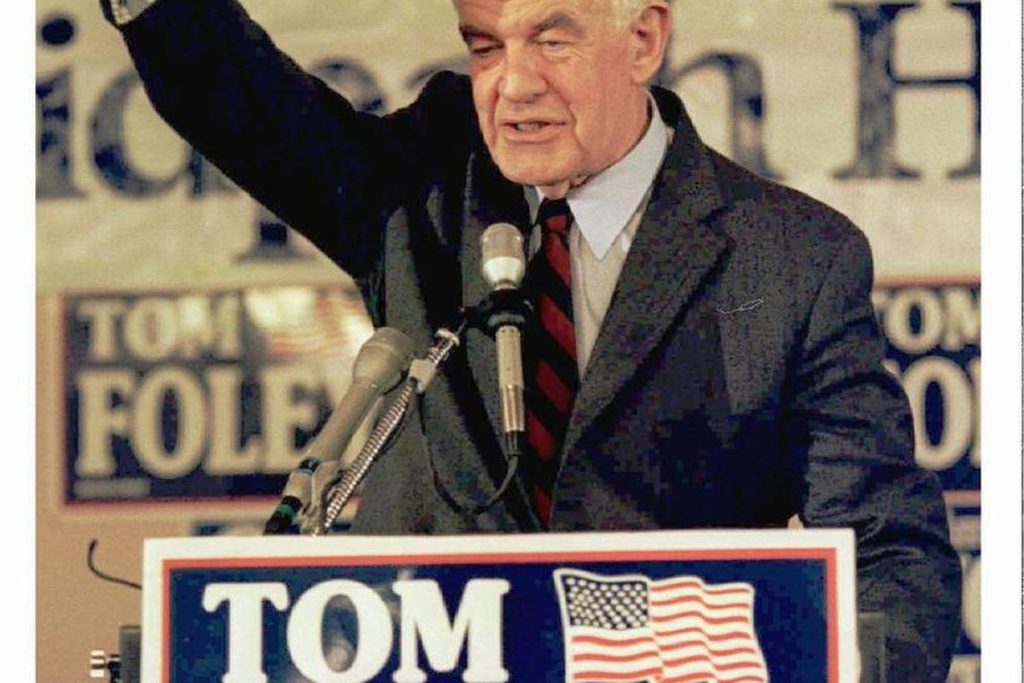
When Foley lost re-election in 1994 in the Republican wave that made Newt Gingrich speaker of the House, as much as any event in the last 25 years a catalyst for the pollution of American politics, he was philosophical. “It’s not a disgrace to lose,” Foley said, “it’s part of the process.”
Eastern Washington voters finally decided Foley’s work on behalf of farmers and free trade and his position atop the House was less important that his opponent’s characterization that the erudite, Jesuit-educated lawyer was “a liberal” who had grown too big for his Spokane britches.
I’ve been thinking about Foley’s rule – a vote every once in a while that cuts against the grain of what most voters think they believe – because such votes have never been scarcer than they are right now. Fifty Republican members of the United States Senate, including the two passionately obtuse backbenchers from Idaho, will confront such a vote in the next few days. Most of them, and certainly Mike Crapo and Jim Risch, are going to take the gentle path of least resistance.
They’ll vote to acquit Donald Trump on charges that he incited the insurrectionist mob attack on Congress on January 6, even though both senators were targets of and witnesses to the attack. They’ll twist themselves once again into a position of pro-Trump denial, a helix of political contortion more dexterous than you’d normally think possible for two guys aged 69 and 77.
Both senators voted this week to not even proceed with a Senate trial of Trump on grounds, not supported by most legal experts by the way, that it is somehow unconstitutional to consider punishing a former president for conduct that was clearly designed to disrupt the work of Congress and ended with the Capitol damaged, scores injured and five dead.
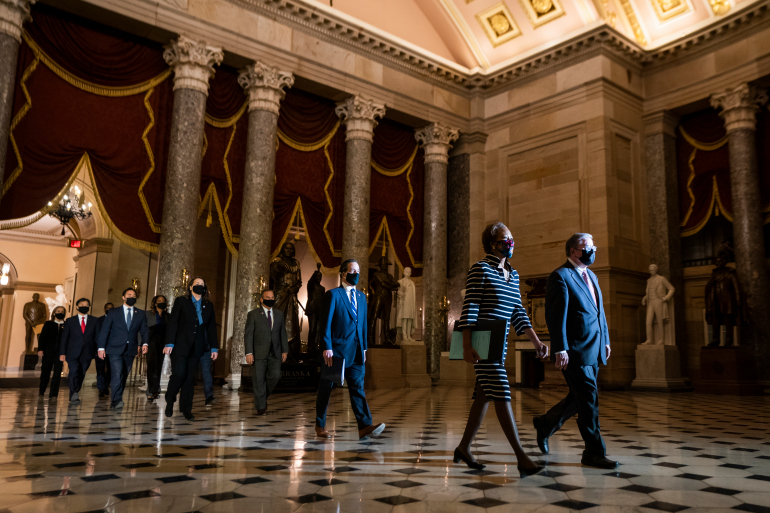
Other Republicans – the slippery Marco Rubio for one – have said a Trump trial is “stupid” since it would further divide the country, a division that Trump, of course, set out to accomplish. The illogic is numbing since Rubio’s rationale, as the conservative columnist Charlie Sykes noted, “insists that holding Trump accountable is more polarizing than Trump’s actual behavior.”
This GOP line of resistance will almost certainly prevail, and Trump will survive impeachment for a second time even as by the hour evidence grows that Trump summoned the mob, used his campaign funds to organize it and then set them off to sack the Capitol. Even the chants of “hang Mike Pence” aren’t enough to convince a Crapo or a Risch that the person they fear most should be held to account for the most serious assault on our government ever incited by an American president.
Crapo, who must be the least known and most minimally accomplished senior member of the Senate of his generation, worries that should he suddenly discover a backbone the same kind of mob Trump incited earlier this month will come for him during his re-election next year. Crapo voted to both impeach and then remove Bill Clinton for lying about a consensual sex act, but now the oath he swore to “preserve, protect, and defend the Constitution” doesn’t extend to sanctioning presidentially inspired insurrection.
Even Kentucky’s senior political weathervane, Mitch McConnell, who a week ago was saying “the mob was fed lies. They were provoked by the president and other powerful people,” voted at first opportunity to let Trump skate.
In the more than three weeks since the mob came after Congress, neither of Idaho’s senators has uttered a syllable of concern about Trump’s election lies or his incendiary rhetoric on the day the Capitol was stormed. Not one word. No statement. No interview. No tweet. Nothing.
Each did praise Capitol police officers who risked lives to protect them so they could live to exonerate the guilty. They gladly celebrated the hundreds of Idaho National Guard troops dispatched to Washington to ensure “the peaceful transfer of power,” but neither Crapo or Risch bothered to connect the presence of the troops or the attacks on the cops to the president who cause it to happen.
The see no evil twins of Idaho’s Senate delegation watched quietly while the arsonist Donald Trump laid the fire, said nothing while he spread the gasoline and went silent when the blaze ignited. Then, as if by magic, they watched the criminal responsible slink off to Palm Beach while celebrating the fire fighters standing around in the cold outside the Capitol.
The belief that a true conservative party, one not dominated by Proud Boys, white supremacists, QAnon conspiracists and guys perpetually decked out in animal skins and Hawaiian shirts, would ever reckon with the disaster that is Trump is as dead as Ronald Reagan. What’s left is a bunch of cowering non-entities like Mike Crapo and Jim Risch, complicit in supporting a level of criminal conduct that will forever be at the center of their mediocre careers.
At the end of the day, you have to wonder what these guys are afraid of? Are these comfortable, secure Republicans afraid that Trump will sic the racist mob on them? Are they betting that the country is ready to move on from a president they lock step condoned even as he tried to steal an election and when that failed tried to prevent Congress from certifying the real winner? Are they simply betting on national amnesia about the first attack on the Capitol since 1814?
Crapo and Risch will never make the kind of tough vote a Tom Foley envisioned as being more important than sacrificing your integrity in order to win an election. But then again, it’s not possible to sacrifice something you’ve never had.
—-0—–
Additional Reading:
Some other reading for your consideration…
The Education of Josh Hawley
A terrific, enlightening and ultimately frightening Politico profile of the controversial senator from Missouri: “The subversive senator’s college peers and professors don’t recognize the affable intellectual they once knew. But they do recognize his ambition.”
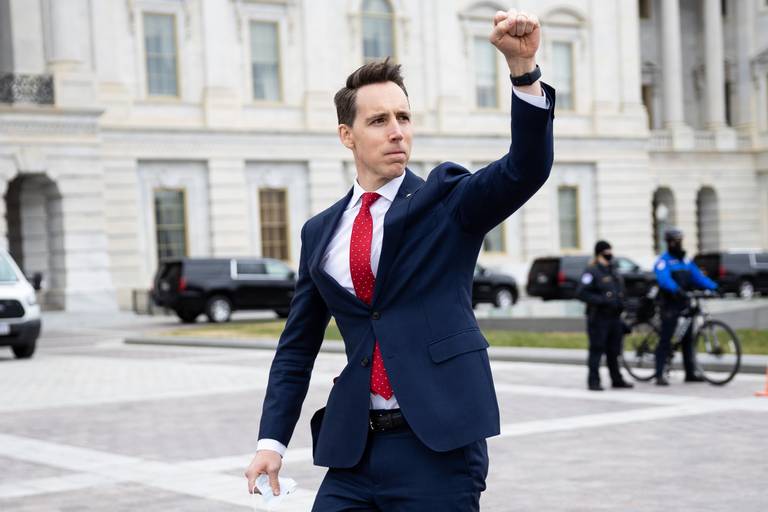
The profile features comments from people who knew Hawley well from his days at Stanford, including the Pulitzer Prize winning historian David Kennedy.
“I absolutely could not have predicted that the bright, idealistic, clear-thinking young student that I knew would follow this path,” says Kennedy. “What Hawley and company were doing was kind of the gentlemanly version of the pointless disruption that happened when the mob invaded the Capitol.”
Read the whole thing to better understand a guy emerging as a key figure in the Republican Party.
The Constitution According To Birch Bayh
A central character in my new book on how the election of 1980 helps explain our current politics is a remarkable United States senator from Indiana.
Birch Bayh is responsible for more of the Constitution than anyone not of the founding generation.
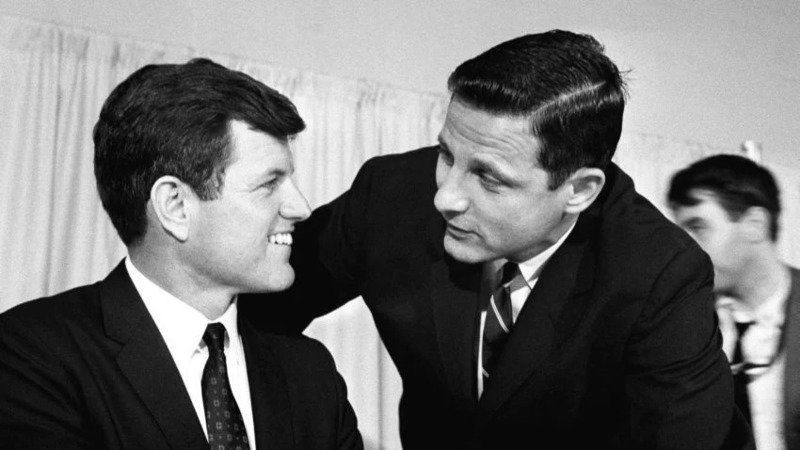
Author of two amendments, including one much in the news at the end of the Trump presidency, Bayh came near passing a third as Susan Salaz recounted recently in Indianapolis Monthly magazine.
“Even more relevant than the 25th Amendment’s ‘nuclear option’ for presidential removal was the next goal to which Bayh turned his attention — abolishing the Electoral College. By 1969, the senator gained strong support in the Senate, and even from President Nixon. In 1970, ratification of the amendment that would establish a national popular vote seemed within reach.”
The Guy Who Made the Bernie Mitten Photo
You’ve seen the photo that inspired a million memes so you should know the photographer’s name – Brendan Smialowski.
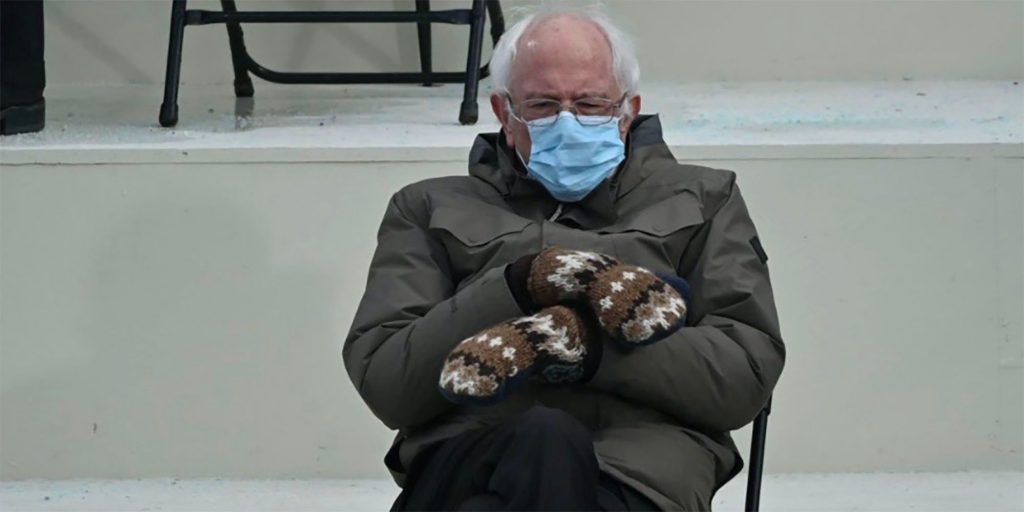
“It’s hard to say why something becomes a meme — there’s no logic to it,” Smialowski said. “When you look at them in hindsight they sort of make sense.”
Thanks for reading. Be safe out there.



